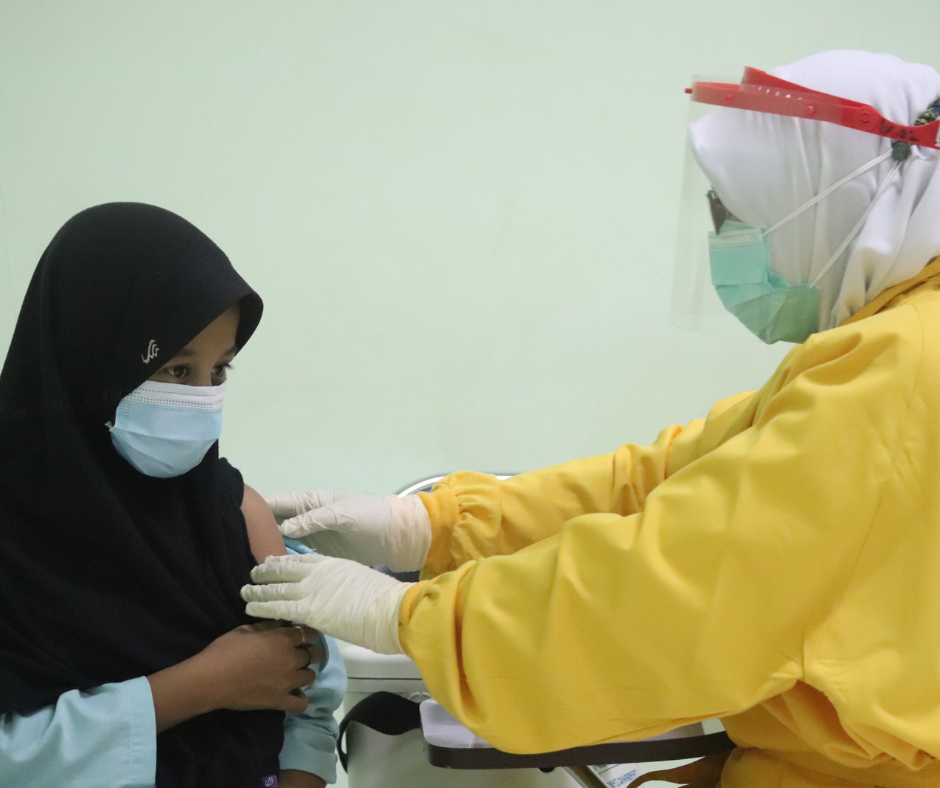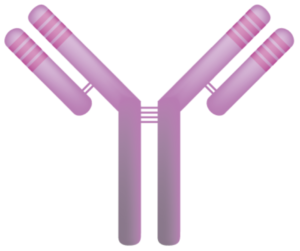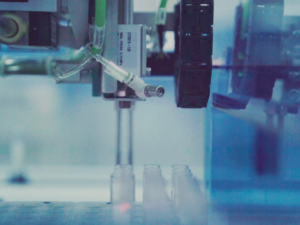Christina Bartholomew | Dec 13, 2021 10:46:21 AM
Although treatment strategies for patients with metastatic gastric cancer who have failed prior lines of therapy remain limited, novel agents such as trastuzumab deruxtecan (Enhertu), provide further options for patients with HER2-positive disease.
Trastuzumab deruxtecan is a humanized antibody drug conjugate that targets mutated HER-2 receptors on cancer cell membranes .1 Similar to other antibody-drug conjugates, once phagocytized, tetra-peptide linkers are cleaved to release deruxtecan, a cytotoxic topoisomerase I inhibitor, within the target cell.1
The FDA originally approved trastuzumab deruxtecan for HER2-positive breast cancer in 2019. 1 On January 15th, 2021, it received additional FDA approval for patients with locally advanced or metastatic HER2-positive gastric or gastroesophageal junction adenocarcinoma who have received a prior trastuzumab-based regimen.1 The new approval is based off results from the Phase II DESTINY-Gastric01 trial.
The DESTINY-Gastric01 trial randomized 187 patients from Japan and Korea with documented locally advanced or metastatic gastric or gastroesophageal junction adenocarcinoma in a 2:1 ratio to either trastuzumab deruxtecan (n=125) or to clinician’s choice of traditional chemotherapy (CCC) of either paclitaxel (n=7) or irinotecan (n=55).2 For inclusion, all patients must have progressed while on two previous lines of therapy, including trastuzumab.2 The primary endpoint reported was objective response rate including both complete response and partial response.2
In the DESTINY-Gastric01 trial, 87% of patients had primary site gastric cancer with the remaining 13% having primary gastroesophageal junction cancer.2 Participants were on average 65 years old (range 28 – 82), 24% were male, and all had an ECOG score of either 0 (49%) or 1 (51%). Prior lines of therapies received other than trastuzumab included taxanes (85.5%), ramucirumab (72%) and immune checkpoint inhibitors (32.6%).2 Notably, only 7% of trial participants had prior treatment with a traditional topoisomerase I inhibitor such as irinotecan.2
Patients in the trastuzumab deruxtecan arm were treated for an average of 4.6 months (range 0.7 to 22.3) with an objective response rate of 51% and a complete response rate of 8%.2 Comparatively, patients in the CCC group were treated for an average of 2.8 months (range 0.5 to 13.1) with an objective response rate of 14% and no patients achieving complete response.2 Median duration of response for the trastuzumab deruxtecan and the CCC group were 11.3 months and 3.9 months, respectively.2 Finally, median overall survival was 12.5 months in the trastuzumab deruxtecan arm compared to 8.4 months in the CCC arm.2
Notable side effects of trastuzumab deruxtecan are similar to other topoisomerase I inhibitors which include nausea (63% any grade, 5% grade 3) and vomiting (26% grade 1 or 2) , diarrhea (32% any grade, 2% grade 3), constipation (26% any grade), decreased appetite (60% any grade, 17% grade 3), anemia (58% any grade, 38% grade 3), neutropenia (63% any grade, 38% grade 3, 13% grade 4), thrombocytopenia (39% any grade, 10% grade 3, 2% grade 4), fatigue (22% any grade, 7% grade 3), and alopecia (22% any grade).1,2 Additional uncommon side effects include reduction in ejection fraction (1.6% any grade, 0.5% grade 3) and infusion related reactions (2% any grade), neither of which were observed in the DESTINY-Gastric01 trial but have previously been observed in the DESTINY-Breast01 trial, the study that gained trastuzumab deruxtecan approval in breast cancer.2,3 Trastuzumab deruxtecan carries a black box warning for interstitial pneumonitis, which requires therapy discontinuation at grade 2 or higher.1
Interstitial lung disease (ILD), or pneumonitis, occurred in 10% of patients in the DESTINY-Gastric01 trial.2 Median time to onset of symptoms was 84.5 days (range 36 – 638 days) with most events being either grade 1 (33%) or grade 2 (50%).2 The majority (66%) of ILD cases resolved by the completion of the DESTINY-Gastric01 trial with an average time to resolution of 57 days.2 This pattern of ILD symptomology was similar in the DESTINY-Gastric01 trial and the DESTINY-Breast01 trial.2,3 Management of ILD in the DESTINY-BREAST01 trial consisted of withdrawal of trastuzumab deruxtecan and initiation of systemic corticosteroids.3 Recommended steroid dosing based on grade of toxicity is available in the package insert.
Approved dosing for gastric or gastroesophageal cancers is 6.4 mg/kg IV every 21 days until disease progression or unacceptable toxicity.1 It is important to be aware this is a higher dose than the FDA approved dose in breast cancer.1 Recommended dose reductions due to toxicities including neutropenia, neutropenic fever, thrombocytopenia, cardiotoxicity, infusion related reactions and ILD also differ between the two indications.1 Cardiac monitoring via ECHO should be completed at baseline and periodically throughout treatment as clinically indicated. No dose adjustments are required for patients with mild or moderate renal impairment or mild hepatic impairment.1 Though deruxtecan is a minor substrate of CYP3A4, trastuzumab deruxtecan does not have any significant drug-drug interactions.1
Trastuzumab deruxtecan has been added to the NCCN Gastric Cancer Guidelines as a second-line treatment option for patients with unresectable locally advanced, recurrent, or metastatic HER2 positive adenocarcinoma.4
References:
- 1. Enhertu (trastuzumab deruxtecan) [package insert]. Wilmington, DE: AstraZeneca Pharmaceuticals US; 2021 January.
- 2. Shitara, K., Bang, Y. J., Iwasa, S., Sugimoto, N., Ryu, M. H., Sakai, D., Chung, H. C., Kawakami, H., Yabusaki, H., Lee, J., Saito, K., Kawaguchi, Y., Kamio, T., Kojima, A., Sugihara, M., Yamaguchi, K., & DESTINY-Gastric01 Investigators (2020). Trastuzumab Deruxtecan in Previously Treated HER2-Positive Gastric Cancer. The New England journal of medicine, 382(25), 2419–2430. https://doi.org/10.1056/NEJMoa2004413
- 3. Modi, S., Saura, C., Yamashita, T., Park, Y. H., Kim, S. B., Tamura, K., Andre, F., Iwata, H., Ito, Y., Tsurutani, J., Sohn, J., Denduluri, N., Perrin, C., Aogi, K., Tokunaga, E., Im, S. A., Lee, K. S., Hurvitz, S. A., Cortes, J., Lee, C., … DESTINY-Breast01 Investigators (2020). Trastuzumab Deruxtecan in Previously Treated HER2-Positive Breast Cancer. The New England journal of medicine, 382(7), 610–621. https://doi.org/10.1056/NEJMoa1914510https://doi.org/10.1056/NEJMoa1914510
- NCCN Clinical Practice Guidelines in Oncology.
- 4. Gastric Cancer. Version 4.2021. https://www.nccn.org/professionals/physician_gls/pdf/gastric.pdf

Christina Bartholomew, PharmD Candidate
2022 University of Colorado Skaggs School of Pharmacy and Pharmaceutical Sciences







